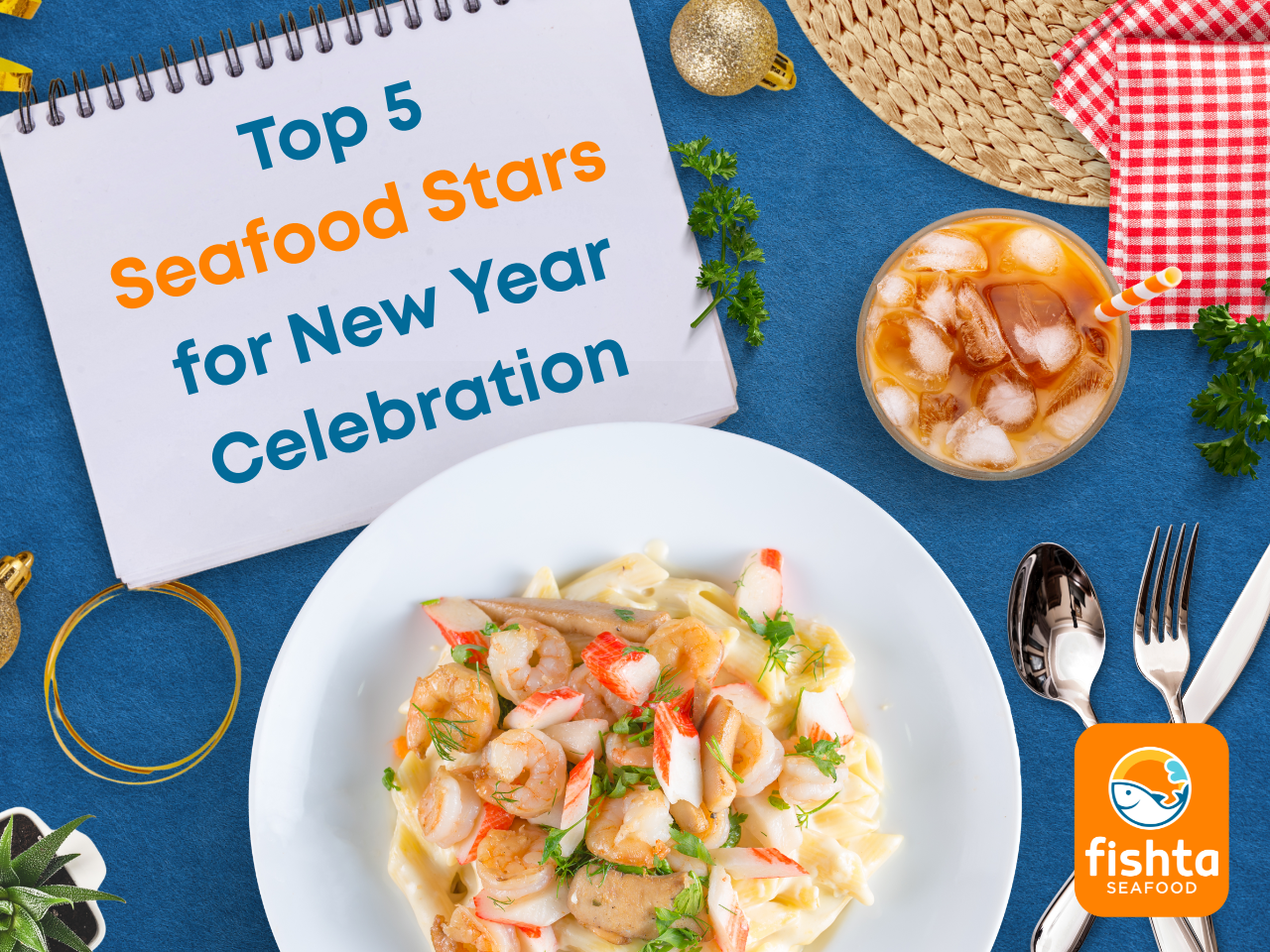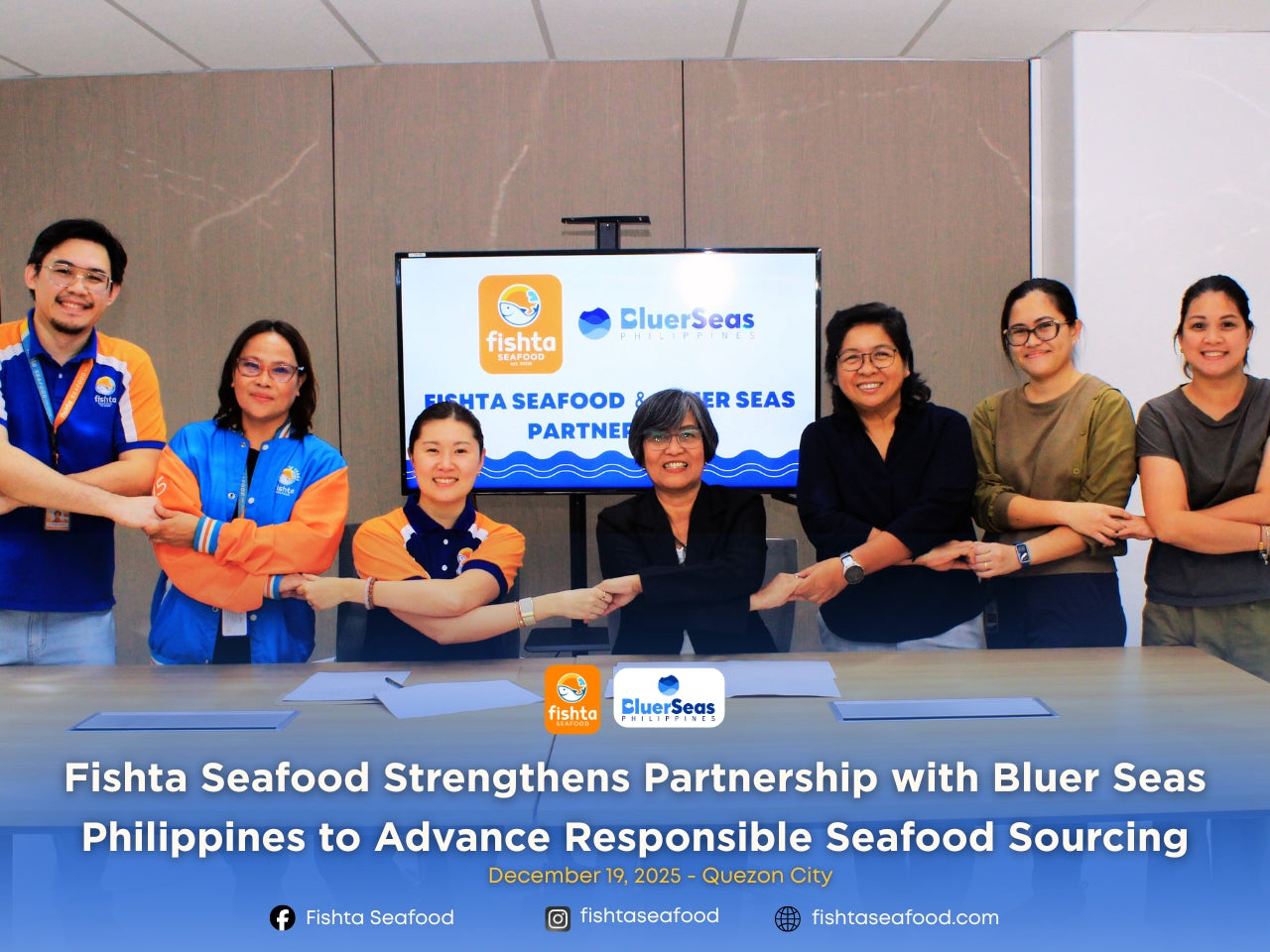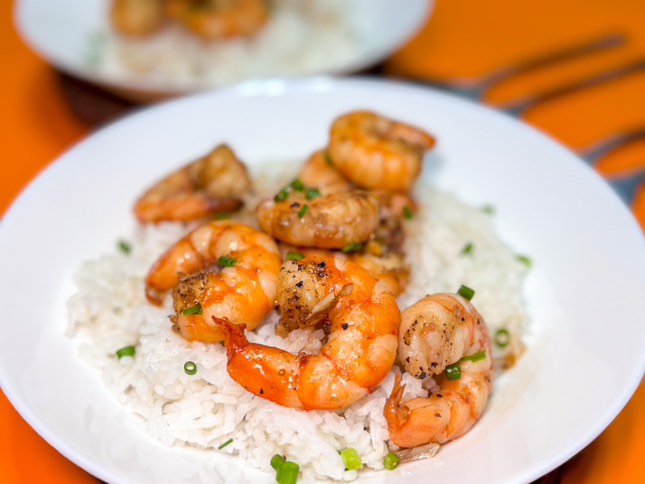Responsible Seafood Sourcing Policy
About Fishta Seafood
History
Fishta Seafood started with the simple idea of providing “Fish for Every Filipino”. For more than 15 years, we’ve consistently provided the freshest seafood from farm to market, with a vision of becoming the trailblazer in the seafood industry, providing clean, safe and traceable fresh seafood to the local market.
We continuously strive to raise Philippine standards on seafood handling and logistics to deliver only the best seafood products. We use these advanced technologies such as blast freezing, indirect contact freezing and individually quick frozen technology to keep our products deliciously fresh for our consumers.
Where we are now
Over the years, we have built a reliable network of responsible farms and fishing communities that put quality and sustainability first. Today, Fishta supplies live, frozen, chilled and smoked seafood to leading supermarkets nationwide, weekend markets and households in urban centers. We also export Philippine seafood products to other countries like Japan and Canada. Every year, we continue to expand our distribution channels to bring healthy produce and provide best value seafood to every home.
Where we are heading
Fishta will continuously intensify its sustainability efforts to become the number one sustainable seafood supplier in the Philippines by working with suppliers, buyers, and customers in educating and advocating sustainable seafood and by implementing and improving sourcing strategies that support fish farmers and fishing communities.
A trustworthy, affordable, and environmentally and socially-responsible brand of seafood
Global policy framework:
- Anchored on FAO Voluntary Guidelines for Securing Small-scale Fisheries in the Context of Food Security and Poverty Eradication and 1995 FAO Code of Conduct for Responsible Fisheries
- Helps Philippines meet the UN Sustainable Development Goals particularly SDG 1, 2, 8, 5, 12, 14, and 17
Scope:
This policy applies the following commercially-important species and all its interrelated supply chains:
- Round scad “Galungong” (Decapterus spp.)
- Indian mackerel “Alumahan” (Rastrelliger kanagurta)
- Short-bodied mackerel “Hasa-hasa” (Rastrelliger brachysoma)
- Blue swimming crab “Alimasag” (Portunus pelagicus)
- Fusilier “Dalagang bukid” (Caesio spp.)
- Golden Threadfin bream “Bisugo” (Nemipterus virgatus)
- Lyretail grouper “Lapu red/Lawihan” (Variola spp.)
- Red snapper “Maya maya” (Lutjanus argentimaculatus, Lutjanus malabaricus)
- Squid “Pusit” (Uroteuthis edulis, U. duvaucelli, Sepiotheuthis lessoniana)
- Narrow-barred Spanish mackerel “Tanigue” (Scomberomorus commerson)
This policy may also cover least-priority species not listed above and could expand to aquaculture species in the future, subject to accessibility of domestic standards that support responsible sourcing of locally-farmed seafood products.
Definition of terms and benchmarking with a sustainability standard
This policy defines “responsibly-sourced seafood” as seafood caught and traded in ways that minimize environmental impacts, and “responsible buyer/business” as a person or entity whose behaviors are mindful of others, environment, and the future generation, in accordance with the criteria and indicators set in the Responsible Seafood Sourcing (RSS) Standard under the Better Seafood Philippines program1.
Fishta’s current practices
Economic
- Fishta continuously provides support to suppliers in improving product volume and quality.
- Fishta supports R&D (product development, process refinements) of seafood.
- Fishta practices open communication channels with suppliers (includes price monitoring in wet markets, fish ports, trading hubs) to enable them to have access to market information.
- Fishta helps create and strengthen market channels for products that are traditionally difficult to absorb.
Environmental & Biodiversity
- Fishta complies with sizing requirements for locally-sold fishery products set by local and national authorities
- Fishta conducts continuous education and awareness raising among staff, suppliers, and clients to be kept informed on local regulations, seasonal and area closures, etc. relating to seafood sustainability – for the purpose of adapting procurement strategy to latest developments in fisheries governance
- Fishta does not and will not source from areas or fishing grounds where closed season is implemented
- Fishta conducts supplier due diligence through supplier visits, engagements, and assessments to prevent entry of IUU-caught seafood
- Fishta does not source and sell shark fins or marine mammal, including other marine species considered Endangered, Threatened, and Protected (ETP)
- Fishta preferentially sources from communities with known environmental and social responsibility efforts
- Fishta periodically publishes consumer educational materials through blogs, press releases, and articles in its website
Compliance and Traceability
- Fishta requires suppliers to provide Land Transport Permit for the movement of fishery products
- Fishta is currently developing an internal process or system to promote full transparency of products, which includes information on origins, fishing methods and gear types
- Fishta encourages suppliers to comply with fisher and boat registrations
- Fishta continuously seeks ways to enhance traceability of its wild-caught seafood products
Food Safety
- Fishta follows the strictest standards on food safety and quality. Our FDA-compliant facilities are audited on a predetermined cycle to ensure consistent compliance to food safety standards.
- Our third party cold storage facilities adhere to credible food safety standards.
- Fishta conducts periodic supplier visits to help suppliers improve post-harvest handling and the products meet food safety and quality standards
Human and Social Welfare
- Fishta engages with environmental community to help advance sustainable fisheries and bring positive change to the seafood industry
- Fishta values its workers and their critical contribution to the sustainability of the business and thus gives recognition and respect to human rights to ensure that individuals have the necessary social tools and protection needed to live a dignified life, such as the right to decent work and workplace, healthcare, and cultural identity, as well as bearing the freedom to express and to associate.
- Fishta complies with General Labor Standards and Occupational Health and Safety standards set by DOLE
- Fishta aims to provide more sustainable livelihoods to women in the supply chain through capacity-building
- Fishta has zero tolerance to child labor and conducts supplier due diligence to ensure that labor issues are prevented
Target setting
- 5% of total wild-caught seafood traceable to source in 2023, increasing year-on-year to 20% in 2027
- 5% of suppliers meet minimum RSS Standard requirements in 2023, increasing year-on-year to 20% in 2027
- 10% volume sourced locally from smallholder communities, community-based enterprise, and MSMEs in 2025
- Agreed number of consumer education materials (through blogs, articles, press releases) every agreed number of years
Future steps on communications strategy for seafood sustainability
- Fishta will continue to explore ways to create sustainable offers/menu and aims to increase volume of responsibly-sourced seafood products
- Fishta seeks to create differentiation of its RSS products vs. “regular products”
1 Better Seafood Philippines is a program that aims to transform Philippine seafood markets by ensuring legal compliance to fishery laws, and empowering small-scale fishers to meet the growing demand for responsibly-sourced seafood. It uses the RSS Standard, a context-specific benchmarking tool that recommends best practices specific to the unique characteristics of each supply chain or fishery, helping to prevent entry of illegally-caught seafood in the market.






